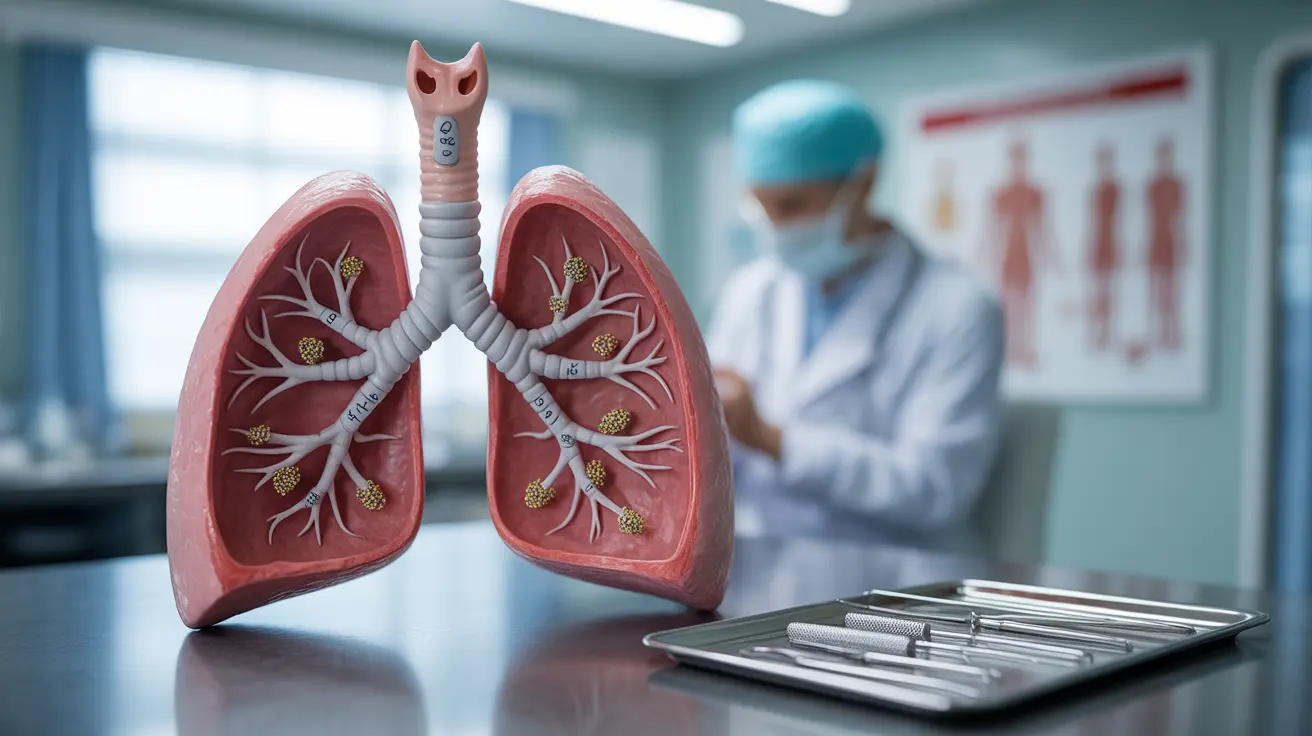Wheezing from allergies is a common respiratory symptom that can be both concerning and uncomfortable. This whistling sound that occurs during breathing often signals that your airways have narrowed or become inflamed in response to allergens. Understanding the connection between allergies and wheezing is crucial for proper management and knowing when to seek medical attention.
While wheezing can be alarming, it's important to recognize that it's often manageable with proper diagnosis and treatment. This guide will help you understand the causes of allergy-related wheezing, available treatments, and prevention strategies to help you breathe easier.
The Connection Between Allergies and Wheezing
When allergens enter your airways, your immune system may react by releasing chemicals that cause inflammation and narrowing of the bronchial tubes. This response can trigger wheezing, which is characterized by a high-pitched whistling sound during breathing, particularly when exhaling.
Common allergens that can trigger wheezing include:
- Pollen from trees, grasses, and weeds
- Dust mites
- Pet dander
- Mold spores
- Certain foods
- Insect stings
Identifying Allergic Wheezing vs. Other Causes
Allergic wheezing often occurs alongside other allergy symptoms, helping distinguish it from other causes. Key indicators include:
- Seasonal patterns matching high pollen counts
- Occurrence after exposure to known allergens
- Accompanying symptoms like sneezing and itchy eyes
- Response to allergy medications
Treatment Options for Allergy-Related Wheezing
Medications
Several medication options can help manage wheezing from allergies:
- Bronchodilators to relax airway muscles
- Inhaled corticosteroids to reduce inflammation
- Antihistamines to block allergic responses
- Leukotriene modifiers for both allergy and asthma symptoms
Long-Term Management Strategies
Effective long-term control often requires a comprehensive approach:
- Allergen immunotherapy (allergy shots)
- Regular use of prescribed preventive medications
- Monitoring and tracking symptoms
- Working with an allergist to develop a management plan
Prevention and Environmental Control
Taking proactive steps to minimize exposure to allergens can significantly reduce wheezing episodes:
- Use high-efficiency air filters in your home
- Keep windows closed during high pollen periods
- Regularly clean and vacuum to reduce dust and pet dander
- Use allergen-proof bedding covers
- Monitor local pollen forecasts
When to Seek Emergency Care
Certain symptoms warrant immediate medical attention:
- Severe difficulty breathing
- Rapid worsening of symptoms
- Blue-tinted lips or face
- Inability to speak in full sentences
- Mental confusion or extreme drowsiness
Frequently Asked Questions
What causes wheezing from allergies and how can I tell if it is related to allergic asthma?
Wheezing from allergies occurs when allergens trigger inflammation in your airways. You can identify it as allergy-related if it coincides with exposure to known allergens and improves with allergy medications. If you also experience recurring wheezing with shortness of breath, chest tightness, and coughing, it may indicate allergic asthma, which should be evaluated by a healthcare provider.
How is wheezing from allergies treated and what medications are commonly used?
Treatment typically involves a combination of quick-relief medications like bronchodilators and long-term control medications such as inhaled corticosteroids and antihistamines. Your doctor may also recommend allergy shots for lasting relief.
Can severe allergic reactions cause wheezing, and when should I seek emergency care?
Yes, severe allergic reactions (anaphylaxis) can cause wheezing. Seek immediate emergency care if wheezing is accompanied by difficulty breathing, rapid pulse, dizziness, or swelling of the throat or tongue.
What steps can I take to prevent wheezing triggered by common allergens like pollen, dust, or pet dander?
Prevention involves minimizing exposure to triggers through environmental controls, using air purifiers, keeping windows closed during high pollen counts, regular cleaning, and following your prescribed medication regimen.
How do doctors diagnose allergic wheezing and distinguish it from other breathing problems?
Doctors use a combination of physical examination, medical history review, allergy testing, and pulmonary function tests to diagnose allergic wheezing. They may also perform specific allergy tests to identify triggers and rule out other conditions.




